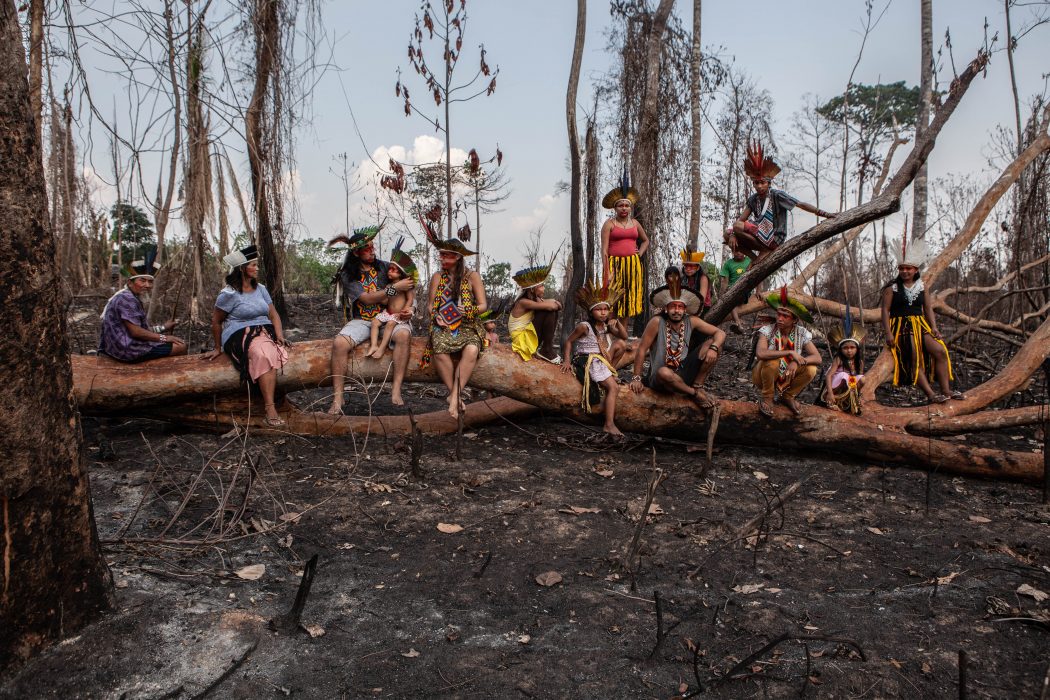What are the consequences of the new UN resolution that recognizes a healthy environment as a human right
Ahead of the Climate Conference in Glasgow, the measure reinforces the idea that vulnerable groups suffer the most from the destruction of the planet
 Povo Huni Kuĩ (Kaxinawa), em área de floresta queimada, no Acre. Para ONU, indígenas fazem parte do grupo de pessoas que mais sofrem com a crise ambiental. Foto:
Povo Huni Kuĩ (Kaxinawa), em área de floresta queimada, no Acre. Para ONU, indígenas fazem parte do grupo de pessoas que mais sofrem com a crise ambiental. Foto:
In October, the UN Human Rights Council recognized, for the first time, that a clean, healthy and sustainable environment is a human right. This historic resolution, considered a milestone for environmental justice, was proposed by Costa Rica, Maldives, Morocco, Slovenia and Switzerland, and passed with 43 votes in favor. Only four countries abstained: Russia, India, China and Japan.
The idea is that countries will now work together to implement this newly recognized right. Additionally, a second resolution also created the position of a special rapporteur dedicated to observing the impact of climate change on human rights.
The text of the resolution states that the impact of climate change and other problems, such as the unsustainable use of natural resources and the pollution of air, land and water interfere with the enjoyment of a safe, clean, healthy and sustainable environment, and that environmental damage has negative implications, both direct and indirect, for the effective enjoyment of all human rights.
Read more
“The Human Rights Council’s decisive action in recognizing the human right to a clean, healthy and sustainable environment is about protecting people and planet – the air we breathe, the water we drink, the food we eat. It is also about protecting the natural systems which are basic preconditions to the lives and livelihoods of all people, wherever they live,” said the United Nations High Commissioner for Human Rights, Michelle Bachelet, in a statement. “Having long called for such a step, I am gratified that the Council’s action today clearly recognizes environmental degradation and climate change as interconnected human rights crises.”
Vulnerable social segments
The coordinator of the Defense of Socioenvironmental Rights program at Conectas, Julia Neiva, reinforced the importance of the intersection between the agendas and pointed out that the resolution is also a victory for civil society. “We now have another instrument to help us demonstrate that socially vulnerable groups suffer more from environmental destruction. Deforestation, river contamination and lack of basic sanitation have a greater impact on black, indigenous and poor people,” she said, reinforcing the concept of “environmental racism”. According to the resolution, indigenous peoples, the elderly, persons with disabilities, and women and girls are the social segments that suffer the most from environmental damage.
Even though it voted in favor of the resolution, Brazil also voted for or abstained on proposals presented by Russia that had the intention to weaken the Council’s decision. Moreover, the Foreign Ministry submitted amendments to guarantee the national sovereignty of the Amazon, but eventually withdrew them given the high probability of defeat. In the end, despite supporting the resolution, it lamented the exclusion of a reference to sovereignty and warned of possible “ambiguities” in parts of the measure.
Discussions at COP26
The resolution was approved shortly before the 26th United Nations Conference on Climate Change, COP26, which will be held in Glasgow, Scotland, in the first half of November. Environmental advocates and global leaders believe the meeting may be a “turning point” for the future of the planet, as it will involve 200 countries to discuss environmental goals and new business models better suited to the current reality.
And the resolution of the Human Rights Council must not be neglected. Neiva, of Conectas, notes that the resolution will strengthen the ability of the global community to adopt new laws and regulations internally aimed at social and environmental protection, and also to pressure countries to join the more than one hundred nations that already internally recognize the right to a healthy environment, even though it is not an international treaty.
Read more:
- Conectas releases e-book on climate and human rights
- How environmental racism affects the lives of black and indigenous people
Michelle Bachelet pointed out that the resolution represents the momentum necessary to help us move beyond the false separation of environmental action and protection of human rights. “It is all too clear that neither goal can be achieved without the other, and to that end a balanced, human rights-based approach to sustainable development must be ensured,” she said. “During the run-up to the critical COP26 meeting in Glasgow, and the negotiations of the post-2020 Global Biodiversity Framework, today’s Human Rights Council resolutions will hopefully stimulate a wider acceptance of such an approach.”






